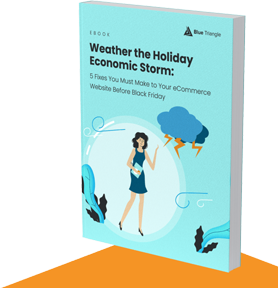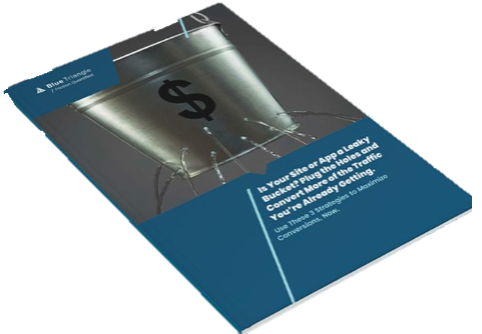What do British Airways, Newegg, and Ticketmaster have in common?
They were victims of cross-site scripting attacks that cost millions of dollars.
Content Security Policies (CSPs) were created to mitigate a specific type of web security threat known as Cross-Site Scripting (XSS), which allows attackers to inject malicious scripts into web pages, compromising user information and sessions.
With a CSP, websites can define what content sources to trust and which ones to block, thus reducing XSS risks. However, the protective powers of a CSP extend far beyond XSS.
By leveraging a CSP to restrict third-party content sources, Marketing and Security/Compliance Teams can defend against:
- Poor Site Performance: Third parties can slow down your site, and even worse, when tags fail, it may prevent your site from loading at all. Both scenarios create costly friction for customers transacting on your site, and it can erode customer trust and loyalty.
- Brand Damage: Undesirable third-party content and external domains inconsistent with your brand vision and brand safety guidelines can appear on your site, causing visitors to encounter objectionable content.
- Customer Journey Hijacking: Browser hijacking and ad injection can result in competitors or bad actors siphoning off traffic and costing you revenue.
- Costly Fraud: Credit card skimming and cross-site scripting (XSS), like the examples below, where online hackers like Magecart steal personal data from your website and customers, can potentially affect millions of customers and cause a significant decrease in revenue and customer trust.
- Security and Compliance Risks: Unauthorized piggyback tags (where approved vendors add unapproved tags to your site) can expose companies to legal or industry penalties, like GDPR, CCPA, other compliance risks, and consumer lawsuits.
But even with these benefits, less than ¼ of the top 1,000 most visited sites have adopted a CSP.
Why?
Many sites operate without a CSP because, so far, they've gotten lucky and haven't experienced a significant security breach or Magecart attack.
Unrestricted third-party content can lead to serious problems for your business and customers.
Look no further than these 3 high-profile stories from British Airways, Newegg, and Ticketmaster.
1. British Airways: A Costly Breach
In 2018, British Airways fell victim to a significant data breach that exposed the personal and financial information of approximately 380,000 customers. This breach resulted from a Magecart attack, where attackers injected 22 lines of suspicious JavaScript code into the airline's website, intercepting credit card numbers, travel booking details, and other sensitive data. British Airways was fined $229 million.
How a CSP Could Have Helped: By implementing a properly configured CSP, British Airways could have prevented XSS attacks, the same type of attack used in their breach. A CSP can specify which sources of content and scripts are allowed to run, effectively blocking unauthorized code from executing. With a CSP in place, the injected malicious script would have been stopped from compromising customer data.
2. Newegg: The Magecart Connection
In the same year as the British Airways breach, Newegg, a prominent online retailer, experienced a similar data breach. Hackers injected 8 lines of malicious code onto a page presented during the checkout process and appeared when moving to the billing page, resulting in the theft of customers' credit card information to a compromised domain. This scheme went unnoticed for nearly a month!
How a CSP Could Have Helped: A CSP is specifically designed to protect against this type of attack. Controlling the sources from which scripts can be loaded can prevent malicious scripts from executing and intercepting sensitive data during the transaction process.
3. Ticketmaster: Third-Party Risks
Ticketmaster, a major ticket sales and distribution company, also fell prey to a massive credit card skimming operation in 2018. The company issued an alert after noticing malicious code on a customer support chatbot hosted by a third party, which was used to exfiltrate customer data, including payment information.
How a CSP Could Have Helped: Organizations can control third-party content on their websites by implementing a CSP. By defining and limiting the sources from which scripts can be loaded, Ticketmaster could have prevented the unauthorized injection of vulnerable code before it was placed and altered on the site, thereby safeguarding customer data.
The Role of a CSP in Protecting Your Brand and Customers
The cases of British Airways, Newegg, and Ticketmaster highlight the significant impact of data breaches and the critical importance of implementing proactive security measures like a CSP. It's a powerful tool for preventing cross-site scripting (XSS) attacks commonly exploited in data breaches.
A well-configured CSP can help organizations defend against malicious script injections and maintain the integrity of their digital properties, ultimately safeguarding both their customers and their reputation. It's not just about security and compliance risk but fully owning the content, services, and experiences presented to your customers.
Read our new eBook, The 2024 Ultimate Guide to CSP, to learn how to securely build, implement, and manage a CSP so you don't become the next headline.
And watch Nick Paladino, Director of Product Engineering, race against the clock and a barista to deploy a robust CSP before his morning cup of coffee even has a chance to cool off.
Grab a coffee on us and let's have a 15-minute chat about CSP.
Frequently Asked Questions
1. What are 5 problems a CSP can solve for?
By using a CSP to limit third-party content sources, Marketing and Security/Compliance Teams can defend against:
- Poor Site Performance: Third parties can slow down your site, and tag failures can prevent it from loading, causing friction and damaging customer trust.
- Brand Damage: Undesirable third-party content and external domains inconsistent with your brand can appear, exposing visitors to objectionable content.
- Customer Journey Hijacking: Browser hijacking and ad injection can divert traffic and impact revenue.
- Costly Fraud: Risks like credit card skimming and cross-site scripting (XSS) can lead to data breaches and loss of revenue and trust.
- Security and Compliance Risks: Unauthorized piggyback tags can result in legal penalties and compliance risks, including GDPR and CCPA.
2. How have high-profile data breaches underscored the significance of implementing a Content Security Policy (CSP)?
In recent years, several high-profile data breaches have highlighted the importance of implementing a Content Security Policy (CSP). British Airways, Newegg, and Ticketmaster suffered significant breaches that could have been prevented or mitigated using a properly configured CSP.
By controlling the sources of content and scripts that can run on a website, a CSP helps prevent unauthorized code from compromising customer data. These examples serve as a reminder of the importance of implementing robust security measures to protect sensitive information online.

During the holiday rush, every shopper matters
Optimize the customer journey before the eCommerce event of the year.

.jpg)

